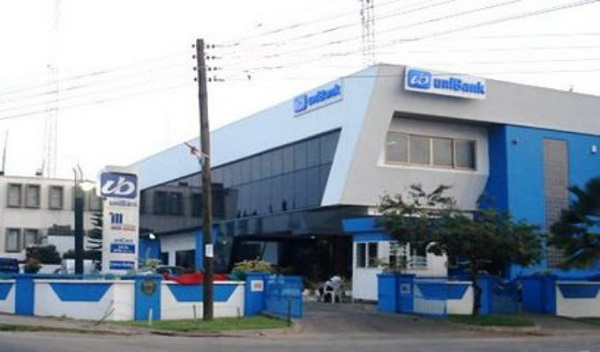The Bank of Ghana has outlined five reasons why it became necessary for it to appoint an Official Administrator for Unibank.
According to a statement issued by the Bank of Ghana Secretary's Department, Unibank among other things refused to cooperate with the Bank of Ghana in the performance of its supervisory responsibilities, including deliberately concealing some liabilities from its balance sheet, and failing to submit documents and records for supervisory inspection.
The statement also revealed that Unibank conducted its credit administration in a manner that has jeopardized the interests of depositors and the financial sector as a whole.
It said efforts made by Bank of Ghana’s supervisory teams who visited the bank’s head office several times this month to obtain current information on the bank’s financial health, proved futile as the Unibank’s management failed to cooperate with the Bank of Ghana staff on site.
According to the Bank of Ghana, Unibank also suffered liquidity shortfalls and consistently breached its cash reserve requirement. As a result, UniBank has relied extensively on liquidity support (over GHS 2.2 billion) from the Bank of Ghana over the past two years to meet its recurring liabilities.
Unibank also failed to submit its monthly returns to the Bank of Ghana for January and February 2018.
Read the five major reasons why Unibank was taken over by the Bank of Ghana;
The appointment of the Official Administrator has, therefore, become necessary due to the fact that uniBank has, among other things:
a) Persistently maintained a capital adequacy ratio (CAR) below zero (currently negative 24%), making it technically insolvent. This contravenes section 29 of Act 930 which requires a minimum CAR of 10% to be maintained at all times.
b) Persistently suffered liquidity shortfalls and consistently breached its cash reserve requirement. As a result, UniBank has relied extensively on liquidity support (over GHS 2.2 billion) from the Bank of Ghana over the past two years to meet its recurring liabilities. Among other things, a key shareholder of the bank managed to obtain liquidity support from the Bank of Ghana using third-party banks as its agents. The Bank of Ghana’s exposure to the bank was therefore underestimated by nearly GHS 400 million, as this amount was not reflected in its books.
c) Conducted its credit administration in a manner that has jeopardized the interests of depositors and the financial sector as a whole.
d) Failed to comply with a directive of the Bank of Ghana dated 26th October, 2017 under section 105 of Act 930, prohibiting the bank from granting new loans and
incurring new capital expenditures.
e) Failed to comply with several other regulatory requirements, including:
Lending to a number of borrowers in excess of its regulatory lending limit (single obligor limit) under section 62 of the Banks and SDIs Act, 2016 (Act 930);
Borrowing from the inter-bank market without the written approval of the Bank of Ghana when its CAR was less than the prescribed ten percent (10%), in breach of section 66(1) of Act 930.
Outsourcing a number of services such as those of tellers, receptionists, and security, to affiliate companies without the prior approval by the Bank of Ghana,
contrary to section 60 (12) of Act 930.
Refusing to cooperate with the Bank of Ghana in the performance of its supervisory responsibilities, including deliberately concealing some liabilities from its balance sheet, and failing to submit documents and records for supervisory inspection.
Poor corporate governance and risk management practices which rendered the bank vulnerable to macroeconomic shocks.
Generally conducting its affairs in a manner detrimental to the interests of depositors and the financial system as a whole.
(Culled from the Bank of Ghana statement)
